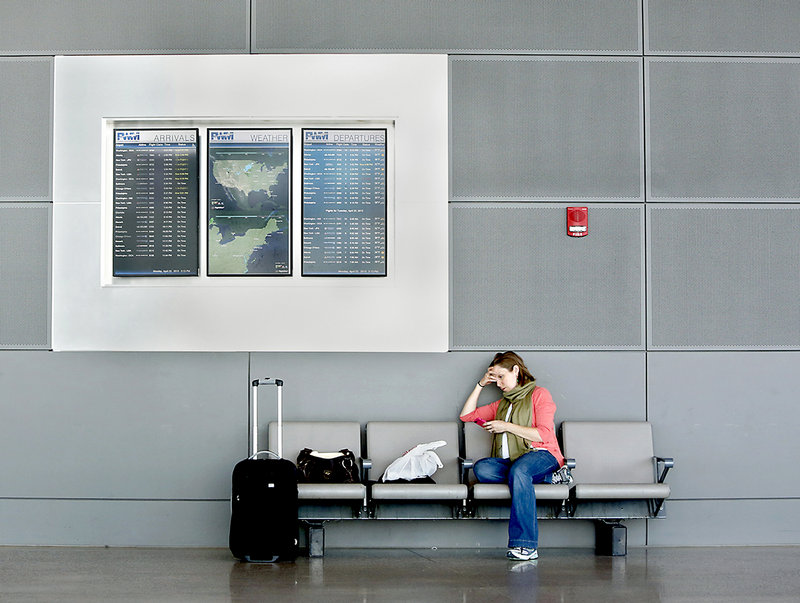Nobody likes to wait in an airport line. No one wants his flight canceled. It’s bad for business when people spend time sitting in airports when they should be at meetings. It’s no fun to miss important family events.
But under the package of across-the-board budget cuts known as the sequester, these delays are to be expected. The Federal Aviation Administration is among the agencies forced to cut its budget by 5 percent over the next seven months. But don’t blame the FAA.
This crisis was designed and built by members of Congress and the White House, and it’s working about how it was intended. These cuts were supposed to hurt. They target defense and the domestic programs that people of all political stripes actually like. The idea was to make the cuts so unpleasant no one would let them go into effect and everyone would be forced to engage in bipartisan deficit reduction talks.
But apparently not everyone got the script, and while the president offered a balanced approach that cut entitlement programs and raised revenue by closing loopholes used by the wealthiest taxpayers, Republicans would not play ball. So we are left with cuts that affect the services that many Americans depend on.
Republicans in Congress are now blaming the agencies for the negative effects on their constituents. They argue that the administration has rigged the cuts to create political pressure on them to raise taxes. The FAA, they argue, could cut other places, such as its consulting and research budgets, instead of furloughing its employees, including air traffic controllers.
But the agency argues persuasively that it does not have that kind of discretion.
More than 70 percent of its budget goes to pay employees, so there is no way it could cut in a meaningful way without affecting employment. Its consulting fees are spent on contract services like telecommunications and weather radar that can’t be cut. With fewer people working, the air traffic controllers have to slow down to keep the runways safe.
This problem could be fixed with a bipartisan deficit reduction deal that balances the policy priorities of all sides. Barring that, we are stuck with cuts like these.
Send questions/comments to the editors.



Success. Please wait for the page to reload. If the page does not reload within 5 seconds, please refresh the page.
Enter your email and password to access comments.
Hi, to comment on stories you must . This profile is in addition to your subscription and website login.
Already have a commenting profile? .
Invalid username/password.
Please check your email to confirm and complete your registration.
Only subscribers are eligible to post comments. Please subscribe or login first for digital access. Here’s why.
Use the form below to reset your password. When you've submitted your account email, we will send an email with a reset code.